The English Standard Version (ESV) of the Bible has become a favorite translation for many bible readers since Crossway first introduced the “essentially literal” translation in 2001. As the use of the ESV has increased, so have reference tools, like Bible commentaries, that employ the translation.
Pastors who preach from the ESV, teachers who teach from the ESV, and readers who study using the ESV, have found these resources very helpful.
| Series | Notes | Browse |
|---|---|---|
| The Gospel According to the Old Testament 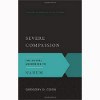 | Reformed perspective; for anyone | Amazon |
| Lectio Continua Expository Commentaries 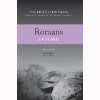 | Reformed perspective; expositional approach | Amazon |
| Preaching the Word  | Revised versions (white covers) use the ESV | Amazon |
| Reformed Expository Commentaries 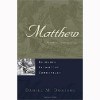 | Reformed perspective; expositional approach | Amazon |
| John Walvoord Prophecy Commentaries 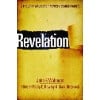 | Evangelical, conservative, dispensational | Amazon |
Revised Standard Version (RSV) Commentaries
The ESV translation, though based on the original languages of the bible, is a revision of the Revised Standard Version (RSV) translation of the bible.
Crossway got permission from the National Council of Churches, who owned the rights, to use the RSV.
In the original edition of the ESV, which has since been revised, about 6% of the RSV was revised, updated, or edited in some fashion.
This means that the RSV and ESV translations still have a lot in common.
Below is a list of commentary series based on the RSV translation.
| Series | Notes | Browse |
|---|---|---|
| Ancient Christian Commentary on Scripture 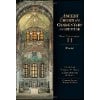 | quotes, insights from the early church fathers | Amazon |
| International Theological Commentaries 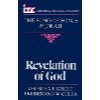 | moderately critical perspective | Amazon |
Interpretation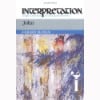 | moderately critical, theological focus | Amazon |
| New Century Commentaries 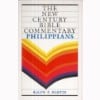 | broadly evangelical | Amazon |
| Old and New Testament Library 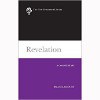 | some volumes critical, some evangelical | Amazon |
Revisions to the ESV
Since its initial publication, the ESV has undergone some minor revisions:
- In 2007, the ESV underwent a 500-word revision, and the publisher did not identify the updated text as a revised edition. The changes included grammar, consistency, and clarity. A noteworthy change was found in Isaiah 53:5, where the phrase “wounded for our transgressions” was changed to “pierced for our transgressions.”
- In 2011, another edition was issued, in which 275 verses were revised. Crossway said the intention of the changes was to correct grammar, improve consistency or increase precision in meaning.
- In 2016, Crossway announced the “ESV Permanent Text Edition,” with 52 word changes in 29 verses. Presently, they will only consider “minimal and infrequent” updates to reflect “textual discoveries or changes in English over time.”
ESV Study Bibles
Study bibles are a great resource for readers to get introduced to the history, theology, literature, and application of the bible.
There are great study bibles that use the English Standard Version translation. Below is a list of many of the best editions.
| Title | Notes | Browse |
|---|---|---|
| ESV Archaeology Study Bible 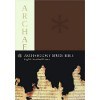 | notes written by field-trained archaeologists | Amazon |
| ESV Study Bible 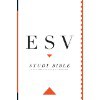 | 20,000 notes; endorsed by John Piper | Amazon |
| ESV Systematic Theology Study Bible 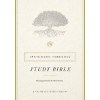 | showing how Christian doctrine arises the Bible | Amazon |
Fire Bible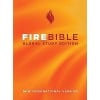 | helps Pentecostal pastors and lay leaders | Amazon |
| The Lutheran Study Bible 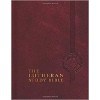 | Lutheran perspectives and lectionary | Amazon |
| The New Inductive Study Bible 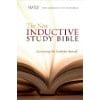 | 32-page explanation of the inductive study method | Amazon |
| Reformation Study Bible 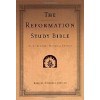 | team of 75 pastors and theologians led by R.C. Sproul | Amazon |
| The Ryrie Study Bible 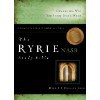 | premillennial perspective | Amazon |
| Thompson Chain-Reference 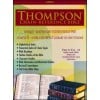 | “self-contained library” of bible study tools | Amazon |
Also see:
Reference Bible vs. Study Bibles
Related Articles
Pastor John MacArthur of Grace Community Church is known for his straightforward expository preaching style. Members of his church, readers of his books, and those who watch him online appreciate his...
There are different types of Bible commentaries because the people who use them have different needs and purposes. Some readers are scholars, others are pastors, and still others are Christians...
